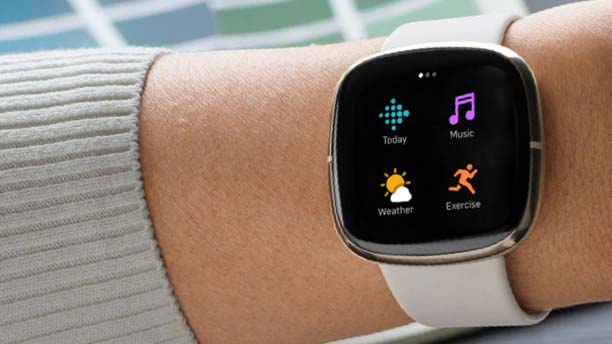
As Covid-19 infection rates continue to ebb and flow across the country, thanks in large part to the highly contagious Delta variant, researchers are continuing to learn more about the long lasting effects of the virus. And one such revelation came courtesy of wearables such as Fitbit.
In a paper published by the journal JAMA Network Open, as reported by the New York Times, researchers found that those who tested positive for Covid-19 had elevated heart rates for weeks or months.
- Here's the best smartwatch for every budget
- Galaxy Watch 4 prices, colors and possible design
- Plus: Apple Watch 7 leaks are boring — and that’s a big problem
The study consisted of 857 participants, 234 of which tested positive for Covid, ranging in age from 18-76 years. It found that those with Covid took longer to return to their resting heart rate (RHR), sleep and normal step counts. About 32.7% of participants saw an increased RHR deviation of more than five beats per minute with it not returning to normal until 133 days later. This group seemed to have gotten the worst brunt of the virus, as they had higher frequency of cough, body ache and shortness of breath.
"Lots of people who get Covid end up getting autonomic dysfunction and a kind of ongoing inflammation, and this may adversely affect their body’s ability to regulate their pulse," Dr. Jennifer Radin, an epidemiologist who led the DETECT trial, told the New York Times.
This could also explain why some experience neurological symptoms, such as brain fog, long after major symptoms have subsided. Other symptoms include shortness of breath, headaches, depression, heart palpitations and chest pain.
This is what Long Covid means
On average, increased RHR did not return to normal until 79 days after symptoms first appeared. Step count and sleep quantity returned to normal sooner, at 32 and 24 days respectively for most participants. The CDC refers to this as Long Covid.
"This uptick we're seeing is concerning, the general trend, patients post-Covid, indicates the body is still undergoing some stress and is experiencing some deconditioning," said Dr. Tariq Dayah, a specialist in cardiovascular diseases for Memorial-Katy Cardiology in Houston, Texas, in an interview with Tom's Guide. Dr. Dayah was not involved with this study.
Sign up to get the BEST of Tom's Guide direct to your inbox.
Get instant access to breaking news, the hottest reviews, great deals and helpful tips.
The inflammation of the heart via infection can either be pericarditis or myocarditis. The former inflames the pericardium, the membrane that surrounds the heart, while the latter inflames the middle layer of the heart wall. "Post-Covid we've seen increased stroke, increased blood clot, and increased inflammation around the heart," said Dr. Dayah.
A lot of the granular data present in this story comes via wearable sensor data. Considering that one in five Americans claim to own a wearable, this gave researchers enough participants to conduct this study. Scientists at Scripps Research Translational Institute in La Jolla, California had more than 37,000 people enroll in the trial. Participants in the Digital Engagement and Tracking for Early Control and Treatment (DETECT) had to download the MyDataHelps app, which would share data via their Fitbit, Apple Watch or other wearable devices.
Last October, the same set of researchers published a study in the journal Nature Medicine and found that those who submitted self-reported symptoms along with wearable data could more accurately detect a Covid-19 case than analyzing symptoms alone. Not only that, researcher at Mount Sinai found that medical workers who wore an Apple Watch could detect Covid-19 a week before onset symptoms or a positive test.
While the trial might be over, researchers at Scripps plan on doing another study, one that asks participants to continue reporting symptoms for weeks or months after first testing positive.
Dr. Dayah stressed that the best way to avoid any heart conditions due to Covid would be to get the vaccine, which has proven effective in warding off the worst effects of the virus.
Imad is currently Senior Google and Internet Culture reporter for CNET, but until recently was News Editor at Tom's Guide. Hailing from Texas, Imad started his journalism career in 2013 and has amassed bylines with the New York Times, the Washington Post, ESPN, Wired and Men's Health Magazine, among others. Outside of work, you can find him sitting blankly in front of a Word document trying desperately to write the first pages of a new book.

